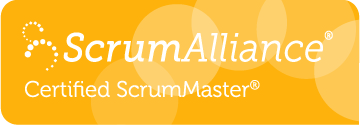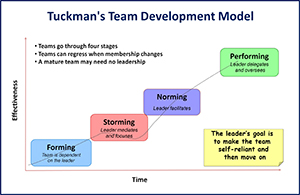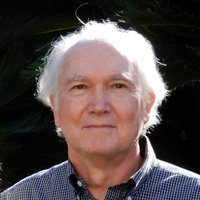Certified ScrumMaster (CSM)
Certified ScrumMaster (CSM)
Learn how to apply scrum and gain practical agile skills to drive results in any role, whether you want to work as a scrum master or grow your capabilities. CSM® courses are delivered by Scrum Alliance-certified trainers who possess deep scrum knowledge. When you complete the course, you will receive a two-year Scrum Alliance professional membership.
Certified ScrumMaster Training

Scrum is the fastest growing Agile project management approach and this course provides the Scrum framework, how to apply Scrum to your projects, and how to navigate the cultural change necessary to implement Scrum. By the end of the 2-day course, you’ll be eligible for membership in the Scrum Alliance™ with the designation of Certified ScrumMaster (CSM) and will have a good foundation to begin or continue your journey towards increased productivity, faster ROI, and improved value to your end customers through Scrum.
Certification requires that you be present and participating for the entire class and that you take a short on-line exam within 60 days of completing the course. We do not use computers in this class and we request that you use your electronic devices only at break times. More information about the certification and test is available here.
The Course

This class runs from 9:00 AM to 5:00 PM. Course attendees are encouraged to have basic knowledge of the Scrum framework from books, journal articles, and online content. Prior experience with Scrum is a plus. We highly recommend that you also read Agile Project Management with Scrum by Ken Schwaber and read this article.
The class a highly interactive and immersive, leveraging many techniques of accelerated learning. Come prepared to participate in many hands-on exercises and a practice Scrum project to help get both the concepts and the feel of Scrum. We start with the values and principles of Agile development, learn the handful of roles, meetings and artifacts of Scrum and then look at the practices of a typical Scrum Team. We will also see how Teams mature, how the ScrumMaster role is key Scrum success and what kinds of speed bumps you may encounter in your organization as it changes the way work is done. Click here to see a more complete class agenda.
The Venues

Our public classes are held at business-class venues with the amenities you would expect. We try to have plenty of elbow room and wall space for the class work. We provide morning and afternoon snacks, lunch and beverages throughout the day. All of this is included in the course price. Parking is also included. Ask us about hotel discounts if you have to stay overnight.
For private classes, we will use whatever space your company has available or arrange for a public space when needed.
The Instructor

Roger Brown has been coaching and training in Agile and Scrum since 2004. He was a software developer for more years than he cares to admit, working in many domains and systems. His development experience includes Dartmouth College, Microsoft and TeleAtlas. He was active in internet programming before the "world-wide web" existed.
Roger has done Agile and Scrum training in the US, Canada, Hong Kong, Tokyo, Belgium, Sweden, Australia and India. He prefers to stay close to home in California these days, though, so you will see most of our classes happening on the West Coast, USA.

Roger spends at least half of his time coaching Scrum Teams and the organizations around them. His clients include many small, unknown companies and many big, well-known companies, most of them in California. He is a founding member of the Scrum Alliance Certified Scrum Coach program.
You can see a list of our training and coaching clients here.
Why Choose This Class?
There are many choices for Scrum Alliance Scrum Certification™. There are dozens of trainers who fly in to California to do a CSM every once in a while. We are located in San Diego and have been doing classes in San Francisco, Silicon Valley and Los Angeles since 2008. So what? It means that you Californians can get personalized follow-up coaching and private training in Scrum, Lean and Agile Development from a local one-stop shop instead of trying to figure out where your instructor came from.
In addition, this class is a lot of fun. Many people have remarked that it is the best technical course they have ever attended. Accelerated Learning techniques are not only engaging, they greatly increase your learning and retention. Take a look here at some comments from our clients.
We don't give away any prizes or do any raffles, but you will leave the class with these new possessions:
- A solid understanding of the Agile values and principles
- A good feel for how and why Scrum works
- A stress ball to help you deal with organizational impediments
- A printed copy of the class slides full of whatever notes you take
- A 2-year membership in the Scrum Alliance
- An invitation to take the exam for certification (it's easy!)
- Membership in a few Scrum-related discussion groups
- 14 PDUs if you are a PMP
Private Training and Coaching
If you have 8 or more people looking for certification, want Agile training for many people with no concern for the certificate or have a team or two to get started, contact us for targeted training.
| Dates: | 23-24 Feb 2015 |
|---|---|
| Location: | Burbank, CA, United States of America |
| Language: | English |
| Venue: |
cPrime |
| Price: |
1250.00 |
| Discounts: |
Discounted seats available. Contact cPrime for more information. |
| Notes: |
About the Instructor
Roger Brown is an independent Agile Coach who provides training, consulting and coaching services in Agile software development areas including Scrum project management and enterprise agile adoption. Roger also does training and mentoring in agile engineering practices such as Test-Driven Development, automated acceptance testing and continuous integration. Roger is focused on helping companies and individuals find their own best approaches to the use of agile methods. Roger is a Certified Scrum Trainer and Certified Scrum Coach. He is a member of the Scrum Alliance, the Agile Alliance and the Agile Project Leadership Network (APLN). Roger is a founding member and certification board member for the Certified Scrum Coach program. Roger is a veteran software engineer, technical project manager and people manager. He has worked with both large and small companies in many industries. His work experience includes Dartmouth College, Vicinity Corporation, Microsoft and TeleAtlas. He currently lives in San Diego, California, USA. Testimonials "This is a must-have for someone struggling to introduce Scrum to their organization/team. One comes out so much richer with ideas and solutions. Kudos to Roger!" - Barclays Global Investors "The CSM course exceeded my expectations for content, delivery, team dynamics, and fun! I thoroughly enjoyed and benefitted from this experience!" - Anonymous "Roger turned me from a skeptic to a firm believer in Scrum and Agile, eager to effect change in my organization" - Raptr Inc "Roger made it fun to learn!" - Independent Consultant Duration2 days, from 9:00am to 5:00pm daily PrerequisitesProject & Program Managers, Product Owners, Business, and IT managers, Team Members, Team Leads, Architects, Developers, Analysts and Testers, Development Managers or anyone interested in learning about Scrum and Agile Methodologies. CertificationAfter taking the 2-day Certified ScrumMaster course, students are eligible to take the CSM Exam online through the Scrum Alliance website. It has 35 questions and no time limit in which to complete. Candidates may bookmark questions, change answers to questions, and even stop the exam, returning to it to complete the questions at a later time within the 90-day period. For more information, please visit the Scrum Alliance directly at:http:/scrumalliance.org What happens if I fail the CSM Exam?Students who do not pass the CSM exam the first time may re-take the exam immediately (no "cooling off" period required) or take it again any time within the 90-day period at no additional charge. After the 90-day period, CSM candidates must pay $25 to re-take the exam. After three (3) attempts it is recommended that the CSM candidate take another CSM course before being permitted to re-take the exam. Please note, it is required that students attend the full 14 hours of this class to be eligible for certification. Frequently asked questions about the exam can be found on our Scrum Guide Cancellation PolicyRegistrants who fail to cancel at least 10 business days prior to the class start date are subject to payment of the full registration fee. Registrants who cancel or roll into another class more than 10 days before the class start date are not subject to any fee. If registrants request to roll into another class within 10 days of the course start date, they are subject to a $150 course change fee. |
-
Certified Scrum Master Course Agenda
These are the topics we try to cover in class. As with life in general, there is more to do than time to do it, so we have to prioritize to suit the participants' interest. We also cover many other topics as they come up, some in real time and some in the parking lot section at the end. For any special-interest topics we do not get to, we follow up the class with our list of Agile/Scrum articles.
Agility

- Agile success relies on “Empirical Process”
- Improvement comes from a continuous learning cycle we call “Inspect and Adapt”.
Scrum Framework
- Scrum has 4 meetings and 3 artifacts
- Scrum has 3 roles that share the responsibility of creating value in small increments
- The roles complement each other to create a balanced team
Scrum Foundations
- Agile software development implements Lean principles and dynamics.
- Scrum is one form of Agile, designed initially for software development but applicable to other kinds of work.
Scrum Execution
- Scrum organizes work into 1-4 week time boxes called Sprints
- Each Sprint has 4 primary meetings
- The bulk of the time is spent creating value in the form of a product
Scrum Planning
- Scrum planning is continuous
- Scrum planning happens at 5 levels, each with a different time horizon
- The Product Backlog is the primary source of work to be completed and value to be delivered
User Stories
- User Stories are simple descriptions of desired functionality
- User Stories have two attributes that are helpful for planning: size and priority
- Stories are elaborated just-in-time for implementation
- Priorities help the Scrum Team decide what to do next
- Priorities help with long term planning
- Prioritization can be done in many ways, based on many criteria
Estimation
- Agile estimation is done at both the high level and the low level
- Estimates are used for planning and for tracking progress
- Estimates are done quickly, by the Delivery Team
- Estimates are not commitments
ScrumMaster Duties
- The ScrumMaster is responsible for the health and growth of the Scrum Team
- The ScrumMaster is a facilitator, mentor, negotiator, protector, coach and servant leader
Focus and Flow
- Scrum works best when the Team achieves a smooth flow of work
- Scrum dynamics are based on the mathematics of queuing theory that we
- use to manage the Internet
Scrum Enhancers
- A 1-sprint look-ahead on stories will help the flow
- Defining Ready and Done will dramatically reduce time waste
Long Term Planning

- Scrum-built products may have Roadmaps and Release Plans
- Team velocity is a measure used in long term planning
Class Project
- Scrum Simulation
Team Dynamics
- Scrum motivates more effectively that traditional financial motivators
- Teams go through stages
- Agile technical practices enhance Team success
ScrumMaster Tools

- Listening skills are key to success
- Knowing how to ask powerful questions will help you coach the Team
- Modeling desired behavior and use of language can have a strong influence on your Team
Technical Practices
- Agile technical practices enhance Team success
- Agile Testing Basics
Parking Lot
- Your Topics
Certification
- Class Evaluation
- Class Picture
Who Should Attend?
This class is a basic introduction to Scrum, so it is appropriate for anyone who wants to understand how Scrum works. We put special emphasis on the ScrumMaster role, but the content is appropriate for anyone who
- is a working ScrumMaster
- is curious to see about becoming a ScrumMaster
- wants to see what is missing in their Scrum implementation
- wants to introduce Scrum into their organization
- will be on a Scrum team or managing people who are
We commonly see people from many industry job categories in our classes including
- Developers

- Testers
- Project Managers
- People Managers
- Executives
- PMO Staff
- IT Staff
- Architects
- Business Analysts
- Tech Writers
And, Scrum is not just for software. Scrum is a framework for managing any type of product development where teams can get the work done sooner. We have had people come to learn about Scrum for application in other domain including
- Marketing
- Sales
- IT Operations
- Hardware Design
- Factory Design
- Process Definition
- Non-Profit Fund Raising
- Media Campaigns
- Content Development


 1-888-444-2890
1-888-444-2890




